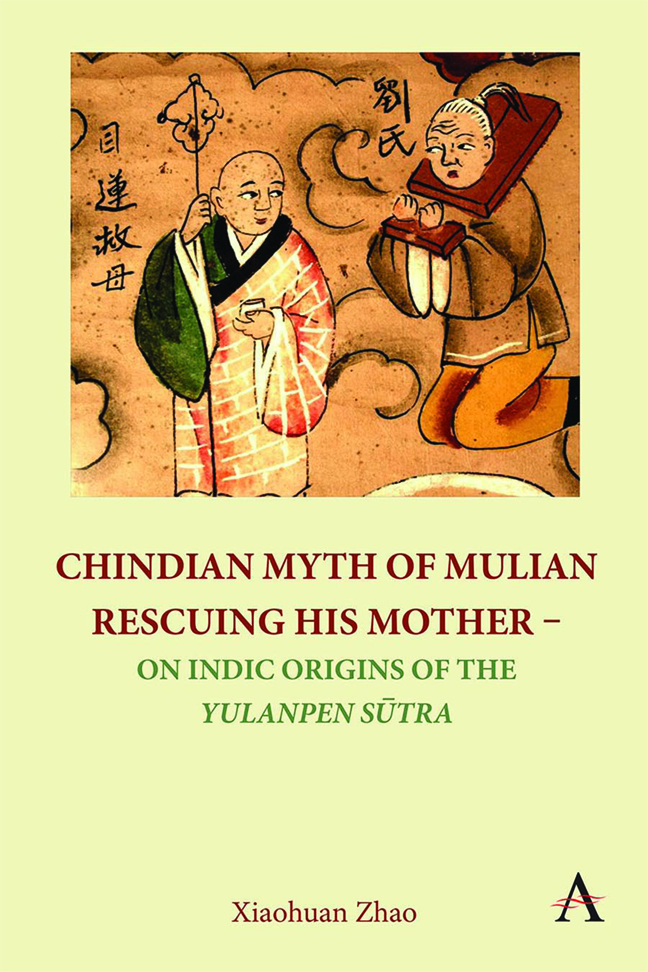Introduction
Published online by Cambridge University Press: 02 March 2024
Summary
The earliest known official Yulanpen Ceremony was held at the Monastery of Universal Tranquility (Tongtai si, see Figure 0.1) in Jiankang, the capital city of the Liang dynasty (502–557), in 538 or the fourth year of Datong during the reign of Emperor Wu of Liang (Liang Wudi, r. 502–549) (Fozutongji, T49n2035_037.351a26). The ceremony soon spread across the country, developed into a grand religious festival – the Yulanpen Festival (Yulanpen jie) – of making offerings to buddhas and bodhisattvas, Daoist gods and priests, deified ancestors, and orphaned souls and wild ghosts (guhun yegui) on the fifteenth day of the seventh lunisolar month, and has since been observed nationwide in China and beyond. At the core of the festival is the myth of Mulian (Skr. Maudgalyāyana; Pāli: Moggallāna) adventuring into the realm of hungry ghosts (Skr. preta; Ch. egui) to rescue his mother.
The primary source for the Mulian myth is the Yulanpen Sūtra Expounded by the Buddha (Fo shuo Yulanpen jing, T16n0685), which is traditionally attributed to the Indo-Scythian Dharmarakṣa (aka Zhu Tanmoluocha, better known as Zhu Fahu, d. 308) as its translator. Beginning in the sixth century, various references to the sūtra and the ceremony/festival appeared in both Buddhist and non-Buddhist literature. In an early sixth-century Buddhist encyclopaedia titled Differentiated Manifestations of the Sūtra and Vinaya Pitṭaka (Finglü yixiang, T53n2121_014.0073c22), for example, the sūtra was given as the scriptural source for the ceremony of making Yulanpen offerings on the fifteenth day of the seventh month.
The ceremony was also mentioned by Yan Zhitui (531–591), a prominent scholar-official who served four different, short-lived dynasties during the Northern and Southern Dynasties (420–589). In the ‘Chapter on the Final Disposition’ (‘Zhongzhi pian’), the twentieth and final chapter of his Family Instructions for the Yan Clan (Yanshi jiaxun 7.602), Yan writes:
Sacrifices should be performed in four seasons as per the teachings of Duke Zhou and Confucius in order for descendants not to forget their deceased parents and their filial obligation. According to the [Buddhist] Inner Canon (neidian), however, it does one no good [to sacrifice], for killing living things would instead add to one's sins. To repay the boundless kindness of one's parents and express sorrow and grief for them, one should make vegetarian offerings from time to time and also make the Mid-Seventh Month Yulanpen offerings. This is what you are expected of.
- Type
- Chapter
- Information
- Chindian Myth of Mulian Rescuing His MotherOn Indic Origins of the Yulanpen Sūtra, pp. 1 - 6Publisher: Anthem PressPrint publication year: 2023

